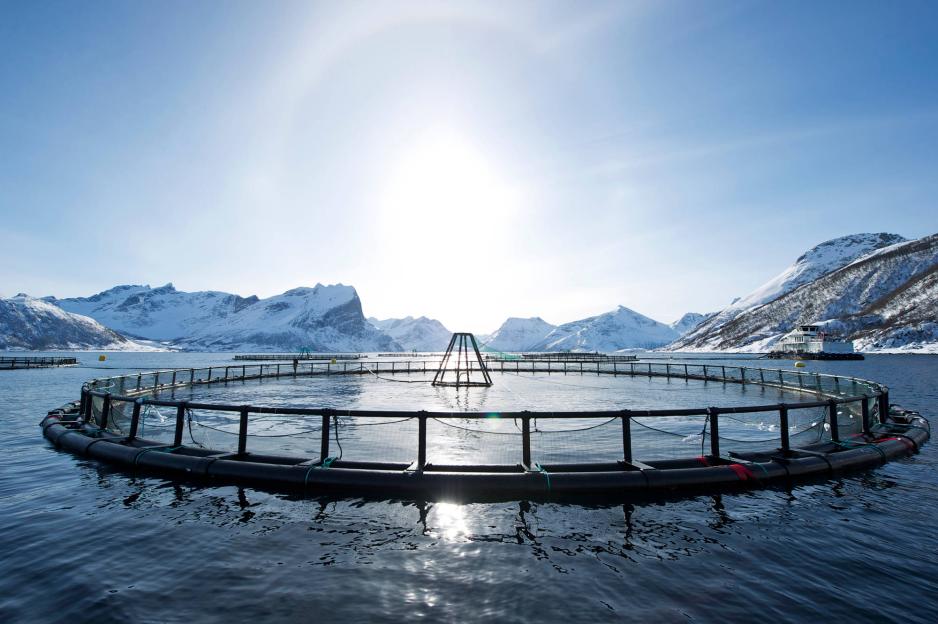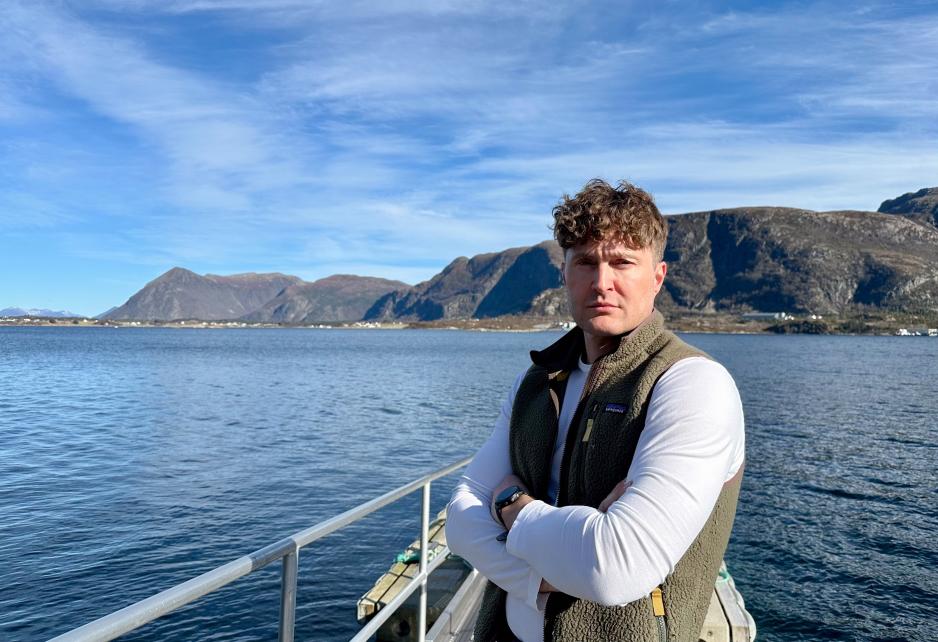Trumps New Tariffs: Could Be Challenging for Parts of the Norwegian Seafood Industry

The USA is Norway's second-largest export market for goods outside of the EU. Salmon is an important part of this export. In 2024, Norway exported goods to the US for NOK 62 billion and more than a fifth of this was fish, according to numbers from Statistics Norway. (Photo: Johan Wildhagen/the Norwegian Seafood Council)
"Despite good export numbers, we are now facing an uncertain time for the world trade with increased tariffs," says the Norwegian Minister of Fisheries and Ocean Policy, Marianne Sivertsen Næss, about the situation in the seafood industry.
US President Donald Trump's new tariff plan was announced on Wednesday, inciting worry in many places. In Norway, the uncertainty is particularly significant for the Norwegian seafood industry, which has increasingly turned toward the US in recent years.
Norway has been imposed a 15 percent tariff, according to E24.
The increased tariffs could have particularly significant impacts on the Norwegian sale of salmon to the US. In 2024, the Americans bought Norwegian salmon for NOK 10 billion, a doubling from 2019. According to Statistics Norway, a whopping 80 percent of fish exported to the country is salmon, mainly in the form of filet.
Although the industry is adaptable, the situation may be challenging for parts of the Norwegian seafood industry.
A growing market in the US
There was also strong growth in the seafood export to the US the first quarter of the year, according to new numbers presented by the Norwegian Seafood Council yesterday. The US was the largest individual market for Norwegian seafood export, measured in value, for all three months of the quarter.
The export volume of salmon to the US was 22,183 tonnes, 56 percent higher than in the first quarter of last year.
"This is a turbulent period in terms of trade policy, but the industry in Norway and the USA is reporting 'business as usual'. The seafood industry is global in nature and used to adapting to constantly changing framework conditions," says Anne-Kristine Øen, the Norwegian Seafood Council's envoy to the USA.
Minister of Fisheries and Ocean Policy Marianne Sivertsen Næss (Labor) also comments on the uncertain situation in connection with the new seafood export numbers.
“The USA has grown strongly as a market in the first quarter and is now by far the largest single market for Norwegian seafood in terms of value, ahead of both Poland and Denmark. Despite favorable export figures, we are now entering an uncertain time for world trade with increased tariffs," says Næss in a press release.
"The government is working actively in favor of Norwegian interests and is in close contact with the industry. Although the industry is adaptable, the situation may be challenging for parts of the Norwegian seafood industry and lead to certain changes in the flow of goods for global seafood trade," she adds.
A global salmon market
Seafood analyst Paul Aandahl of the Norwegian Seafood Council said in a previous interview with HNN that the implementation of tariffs on seafood going to the US will negatively affect the global salmon market.
"The salmon market is global, and a potential US tariff will lead to a movement in the flow of goods at a global level. That is, the flow of goods will move from the US to other markets. This will allow some nations to benefit while others suffer disadvantages. The effect will depend on what alternatives exporters in the producing countries have and what alternatives American importers have," he said.
A broad and serious increase in tariff which could have major consequences for Nordland.

Hans Christian Hansson, regional director of the Confederation of Norwegian Enterprise's Nordland department, is worried about the escalating turbulence in global trade. "The ripple effects could be significant in the entire county," he says. (Photo: NHO Nordland).
Ripple effects in the North
In the export county of Nordland, the Confederation of Norwegian Enterprise fears that Donald Trump's new tariff regime could halt growth and create major ripple effects. The county is big on the export of seafood and metals.
"This is a broad and serious increase in tariff which could have major consequences for Nordland. Both directly and indirectly. This naturally impacts those who export to the US, but also businesses that are part of European value chains that export to the US," says regional director of the Confederation of Norwegian Enterprise's Nordland department, Hans Christian Hansson, in a press release.
Among the other tariffs that Trump announced on Wednesday was the introduction of a 20 percent reciprocal tariff on goods from the EU, as well as an additional 34 percent reciprocal tariff for China.
Hansson elaborates on the ripple effects that the increased tariffs could have.
"We are an open economy, and major parts of our wealth is built on trade with other countries. When the world's markets construct tariff walls, it also affects those who do not trade directly with the US. We especially fear an escalation between the US and the EU. The EU is our most important market, and very many businesses in Nordland are closely integrated in European value chains," he says.
Hansson also highlights implications for many businesses dependent on raw materials and input factors from abroad.
"If they also are impacted by new tariffs or supply issues, costs and uncertainty will increase. With that, we risk lost investments and weaker growth, and eventually also fewer jobs in a worst-case scenario."

"It is imperative that Norwegian authorities work closely with the EU to avoid Norway being impacted by possible protective duties in addition to what is now coming from the US," says the Deputy Managing Director at the Norwegian Seafood Federation, Trond Davidsen. (Photo: Ø. Haram/the Norwegian Seafood Council).
"Must work closely with the EU"
Norway's largest seafood organization, the Norwegian Seafood Federation, also specifies the importance of having the government work closely with the EU.
Although the US is the largest individual market, major parts of Norwegian seafood are exported to the EU.
"It is imperative that Norwegian authorities succeed in their work to avoid Norway being impacted by possible protective duties [from the EU, ed. note], says the Deputy Managing Director at the Norwegian Seafood Federation, Trond Davidsen, in a statement.
"The most important thing for us right now is to get an overview. Most of this is unclear. To what degree we will be affected is hard to say right now. We are working to get more knowledge about the final tariffs," he adds.

